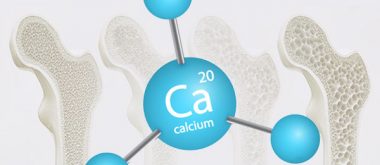New research finds that Individuals with psychotic disorders may stand at a greater risk of developing dementia later in life. The results of a study connect the two mental maladies and address steps people can employ to potentially prevent or limit their chances of developing either or both of these serious mental afflictions.
What Is Dementia?
Dementia is a medical term used to describe a host of conditions that might produce a gradual decline of an afflicted individual’s mental and cognitive functions. One of the more common manifestations of dementia is Alzheimer’s Disease, which results in a steady and permanent damage and destruction of brain cells. However, dementia may also be precipitated by a variety of biological issues, some of which might be reversible.
In all instances and manifestations, those stricken often experience symptoms that include severe memory loss, problems effectively speaking or communicating, concentration difficulties and, in the more severe or advanced cases, may no longer have the ability to execute routine, daily functions such as dressing, bathing or feeding themselves.
What Are Psychotic Disorders?

Psychotic individuals might also suffer from hallucinations in which they believe to witness sights and events and hear sounds unseen or unheard by anyone else.
Psychoses can be precipitated by severe alterations in brain chemistry. However, conditions such as brain tumors, infections, alcoholism and serious drug dependency might also elicit such mental problems. In some instances, psychotic persons may become violent. Under these circumstances, they may pose a threat to themselves or society and may require institutionalization.
Can Psychotic Disorders Increase A Sufferer’s Risk of Developing Dementia?
According to a team of Australian researchers, the answer to this question may be in the affirmative. These scientists studied nearly 38,000 men between the ages of 65 and 85 over periods lasting up about 18 years. More than 8,000 test subjects developed dementia. After examining several health and statistical variables, researchers concluded that many of the subjects with dementia had a prior history of psychotic illnesses. In fact, the findings concluded men with such a health background were three times as likely to develop dementia at an advanced age. It is to be noted that this study did not include women.
Can Steps Be Taken to Prevent Psychosis and Dementia?
Preventing Psychosis
Preventing psychosis is difficult. Currently, the scientific community is focusing on identifying and monitoring “high-risk” individuals such as those who have displayed deviant behavior at some point in their lives or those who have a family history of psychotic illnesses.
Preventing Dementia
Like some other mental maladies, dementia is a challenge to prevent because it is not always known what precipitates the conditions that lead to its development.
However, many members of the medical community opine that executing certain activities might decrease’s one’s risk. Such potential preventative measures include the consumption of a healthy and balanced diet, exercise, maintaining a healthy weight, engaging in brain stimulating activities and avoiding or at the very least controlling potentially dangerous health problems like high blood pressure, elevated cholesterol levels and diabetes.





